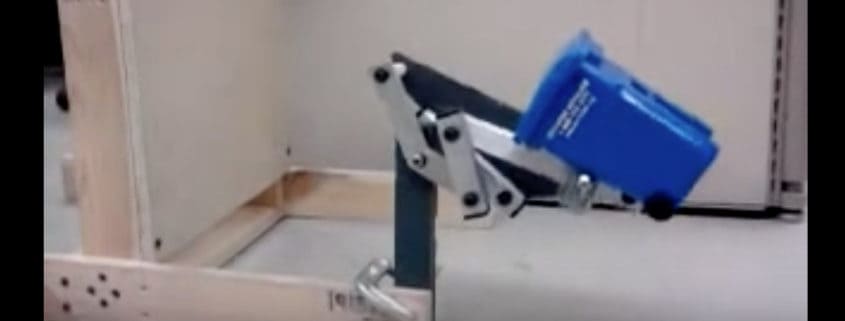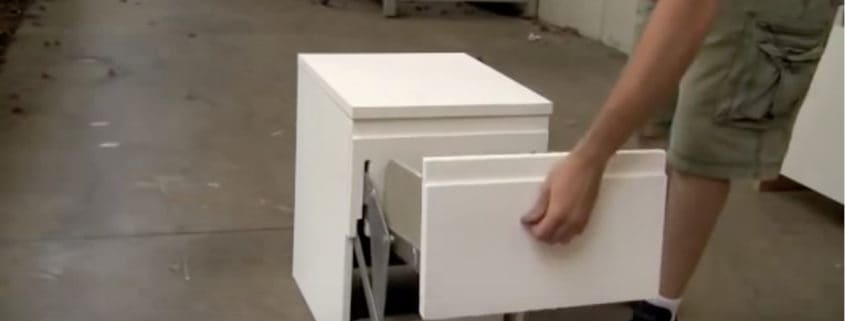Six-bar Trash Dumping Linkage
This compact six-bar linkage is designed to lift and dump a trash can. Eddie Lee, Peter Lim, Khemara Tep and Kevin Hung worked on the design and construction of the prototype.
This is the SolidWorks animation:
This is a video of the operation of the prototype:










